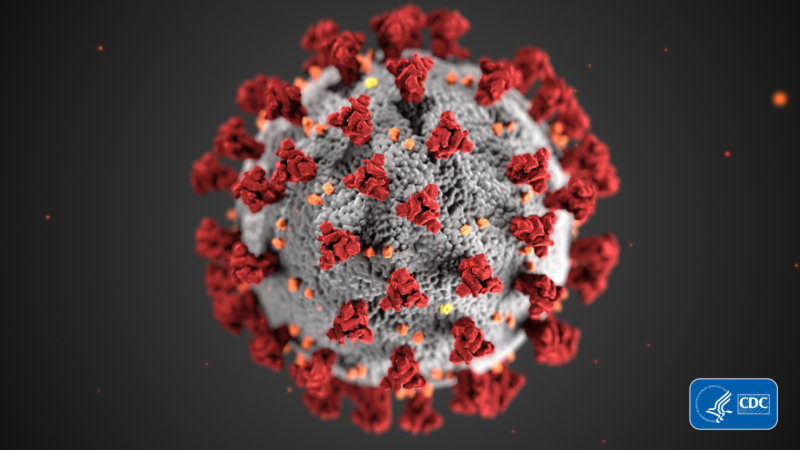In late February, the Centers for Disease Control and Prevention [CDC] held a press conference about the ongoing spread of Covid-19, otherwise known as the Coronavirus. Mentioning that as the disease spreads, it will more than likely disrupt daily life for Americans, the CDC stressed the importance of taking extra precautions against the spreading infection. Precautions that given the uncertainty of the CDC under the administration of President Donald Trump will need to be taken with more seriousness by state and city health professionals.
In a report from ProPublica, the CDC made critical missteps in preparing for the response to the virus, and presently there isn’t much data about testing for it. As of this publishing date, the CDC has removed all data about testing numbers from their website, and more and more cities, such as Seattle, have reported more cases of unknown origin.
Without sounding alarmist, we looked at the response to Coronavirus in Michigan to see how it would affect peoples day-to-day and what is being done in Lansing and at the local level to prepare for the virus.
HOW CAN YOU PREPARE FOR CORONAVIRUS?
While it may sound scary, it’s important to remember that you are still more likely to get the influenza virus than Coronavirus, and simple precautions such as washing your hands and getting a flu shot can help to curb the spread of both. While a flu shot may not sound relevant to combating COVID-19, getting one will prevent you from getting influenza, allowing your immune system to remain strong.
Reaching out to the Detroit Health Department to see what can best be done to prevent the spread of Coronavirus, Najibah K. Rehman, Medical Director for the Detroit Health Department, stressed the importance of basic hygiene.
“Like any illness, stay home if you are sick. Cover your mouth when you cough or sneeze (preferably into your elbow), wash your hands or use alcohol-based hand sanitizer. Do not touch your eyes/nose/mouth without washing your hands, and clean surfaces with antiseptic solutions containing bleach,” shared Rehman. “We have had two pediatric flu deaths in Michigan. Influenza is different from Coronaviruses, so we continue to encourage getting the flu shot. It is not too late. The flu season runs from October through May of each year, so there is plenty of time to get vaccinated.”
“Protect yourself the way you would any illness. This is not just to protect yourself but others that may have compromised immune systems that may be at greater risk for severe illness or death. That includes people with heart problems, diabetes, cancer, HIV, chronic kidney disease,” Rehman added to her response.
While washing your hands may seem like a no-brainer, a 2018 study by the USDA found that 97 percent of Americans do not wash their hands correctly. When washing your hands, it’s essential that you do so with soap and warm water for 20 seconds, while using a clean towel to dry your hands.
While there isn’t enough data to determine how much the disease has spread among the Detroit community, Rehman did say that anyone who flys into Detroit Metropolitan Airport is being screened for the disease, and the city is working in close collaboration with neighboring local health departments, Michigan Department of Health and Human Services, and Windsor-Essex Health Department in Canada. At the moment, according to Rehman, there have been 9 cases of person-person spread in the U.S. out of a total of 22 cases, but as time moves on, this data is likely to change.
FIGHTING THE SPREAD AT THE STATE LEVEL
Checking in with Lansing, Jay Fiedler, Director of the Division of Emergency Preparedness and Response, for the Michigan Department of Health and Human Services said the state of Michigan is working closely with the CDC to monitor the spread of COVID-19 carefully.

WASHING YOUR HANDS IS THE BEST WAY TO PREVENT THE SPREAD OF CORONAVIRUS. PHOTO BY ALLIE SMITH ON UNSPLASH
“We’ve been, for weeks now, since this outbreak was first identified in China, working with our local health departments and our healthcare partners. We want them to be aware of these processes that we talked about before the first steps of travel monitoring, the next steps are going to be community mitigation measures and just preparing themselves in their communities,” shared Fielder.
While mentioning similar points to Rehman from the Detroit Health Department about community monitoring, Fielder also touched on some disruptions people would face should the virus continue to spread unchecked. Should the matter come to it, we see schools and businesses closing; healthcare facilities could become overburdened, and planned community events might face cancelations.
But, without wanting to raise alarms, Fielder did note that schools closing are not out of the ordinary, and we have seen similar actions in response to less-severe health outbreaks. He also made the point that, despite some fear, COVID-19 does not yet meet the criteria for a global pandemic.
“This has not yet met the definition of a pandemic primarily because there hasn’t been enough global spread,” noted Fielder. “Now, given the events of the last couple days, I think what you’re CDC and what you’re hearing from WHO [World Health Orgniziation], is you’re taking this information and using that to evaluate that current pandemic status and I think they’re seeing it’s heading in that direction.”
At the present moment, the state of Michigan is actively monitoring 66 individuals for the disease, but there has yet to be a definite diagnosis. The state has remained in close contact with the CDC, and a fact sheet for the virus can be found here.
While there is no way of telling what will happen with COVID-19/Coronavirus, take the precautionary measures. Wash your hands before eating, and after using the bathroom (that’s not really something we should have to stress, but yet here we are!), also, be sure to cover your mouth with your elbow when needing to cough. Lastly, to ration supplies, avoid buying facemasks, as there is the risk of a shortage in the United States, and covering your face does not help to protect you from the virus.
- Update – March 11, 2020: As of March 11, there have been two cases of COVID-19 in Oakland and Wayne County. Governor Whitmer has declared a state of emergency, while Michigan State University and Wayne State University have stopped in-person classes. Take extreme caution, wash your hands and avoid touching your face.






















